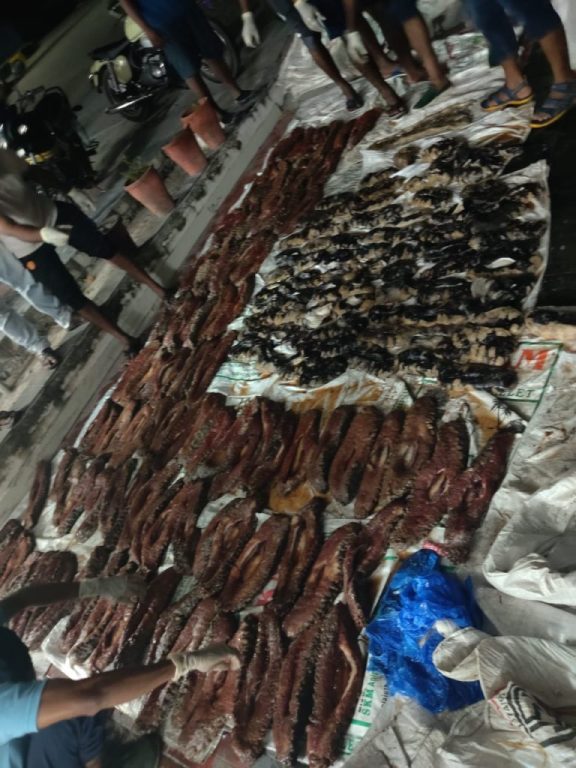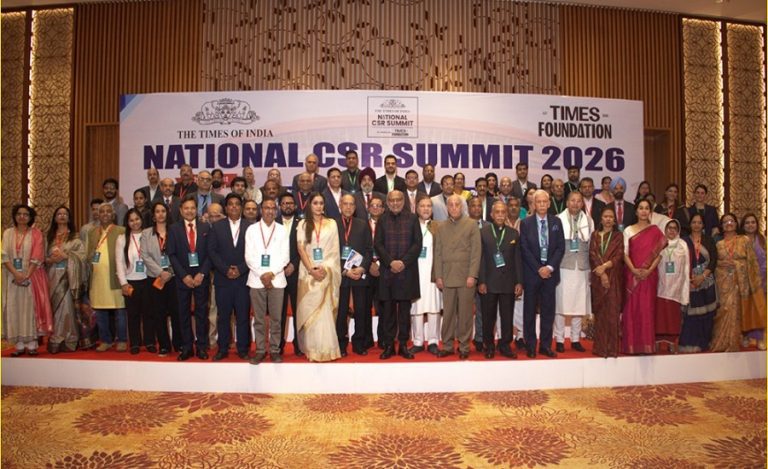Lakshadweep, the tropical archipelago originally consisting of 36 islands (only 35 remains now), is one of the most beautiful places in the world. With its sandy lagoons, coral reefs and marine flora and fauna, it attracts people by the dozen to its shores. Besides regular tourists who come to enjoy its waters, beaches and water adventure sports, a recent trend saw people from many other parts of the country, like Kerala, Tamil Nadu and West Bengal, land in this archipelago for work.
Everything seemed normal before cases of poaching of marine animals, especially the sea cucumbers, started slowly coming to light. The disappearance of these animals from some of the lagoon area created a worrisome situation.
During a conversation with Indian Masterminds, Indian Forest Service officer, Damodar A. T., who is the secretary of Environment and Forests, Lakshadweep, talked about the alarming poaching situation and the steps being taken by his team to curb it.
SAVE SEA CUCUMBERS
Also known as sea worms, sea cucumbers are mostly found on the sea floors across the world. They are from the Holothuroidea class, with elongated body and leathery skin. The shape and look of the animal might not be as attractive as other exotic marine species, but these sloth-like creature is very important for coral reef ecosystem. They act like scavengers and eat all the algae and waste particles from lagoons which serve as the breeding ground for various fish. Also, they are able to digest the white sand patches from the coral reef and, thus, ensure their health.
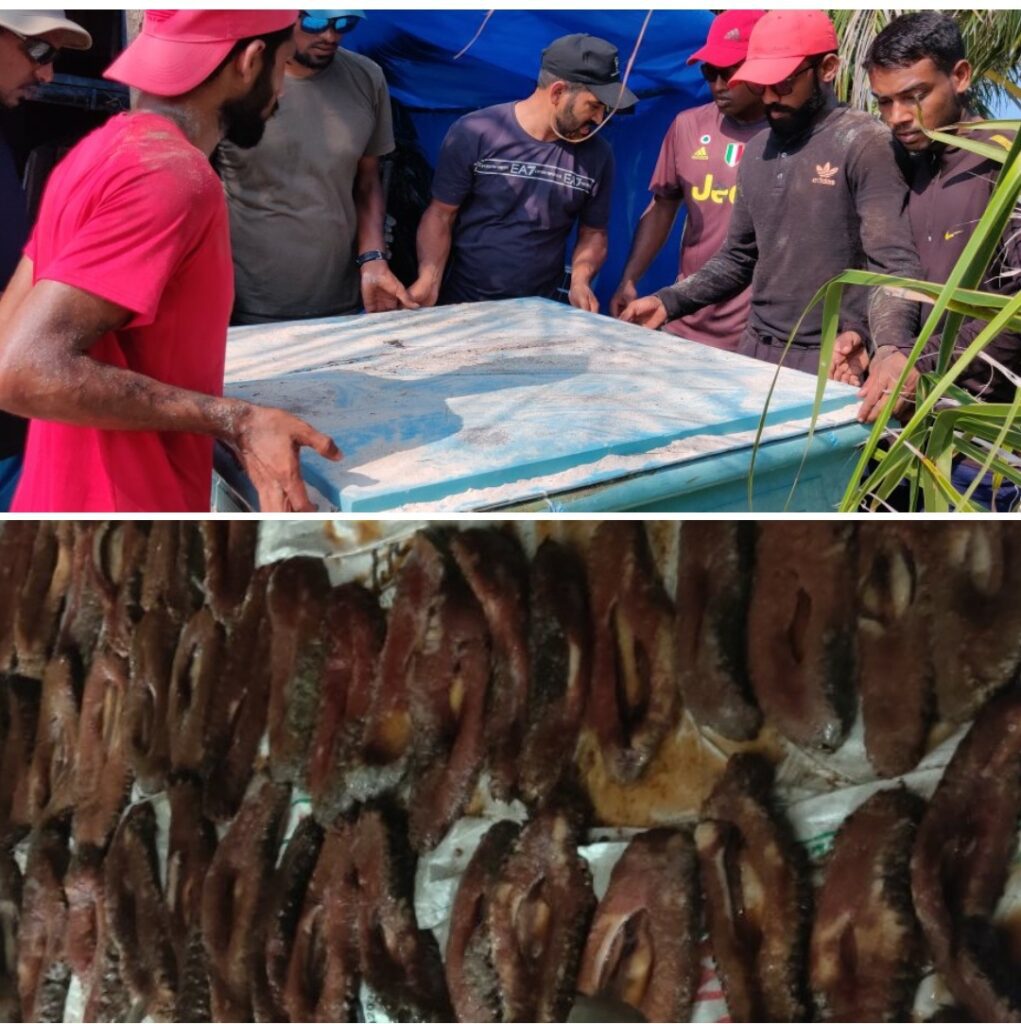
More than a thousand such species are available worldwide, of which 173 are found in Indian waters. Only 16 of them have great commercial value, but in past decades, almost all of them were extracted by the fishing mafia and sea cucumber collectors from Tamil Nadu and Andaman & Nicobar Islands. This resulted in the eradication of these species from there, and sea cucumbers were listed in Schedule 1 of the Wildlife Protection Act in 2001 along with tigers and elephants.
ILLEGAL POACHING
According to Mr. Damodar, there is huge demand for sea cucumbers in China and Singapore and other South Asian countries for medicinal purposes and, also, for food.
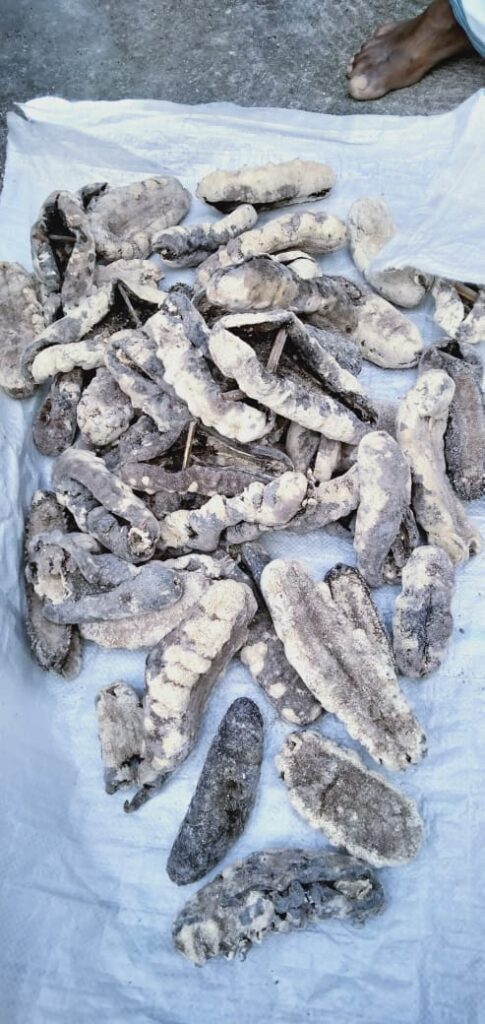
“Earlier the fishermen weren’t catching sea cucumbers, but now that they are offered hefty amount of money, they do it. The rate is Rs. 2,30,000 per kg and it is easy to catch them as they don’t move fast. Some mafia and poachers have penetrated the area and started illegal trade of this animal. Mostly they are sent outside through different routes by mixing them with fish and other marine animals. The challenge is to identify such offenders and take action against them,” said the officer.
ACTION BEING TAKEN
To stop these poaching activities and illegal trade, a Sea Cucumber Protection Task Force has been formed under the leadership of the officer. This force has seized crores of rupees worth of sea-cucumbers and, also, put offenders behind bars. They are also engaging in community awareness activities involving students and youth to inform them about how the sea cucumber help in fishing and what is the harm if they continue catching it.
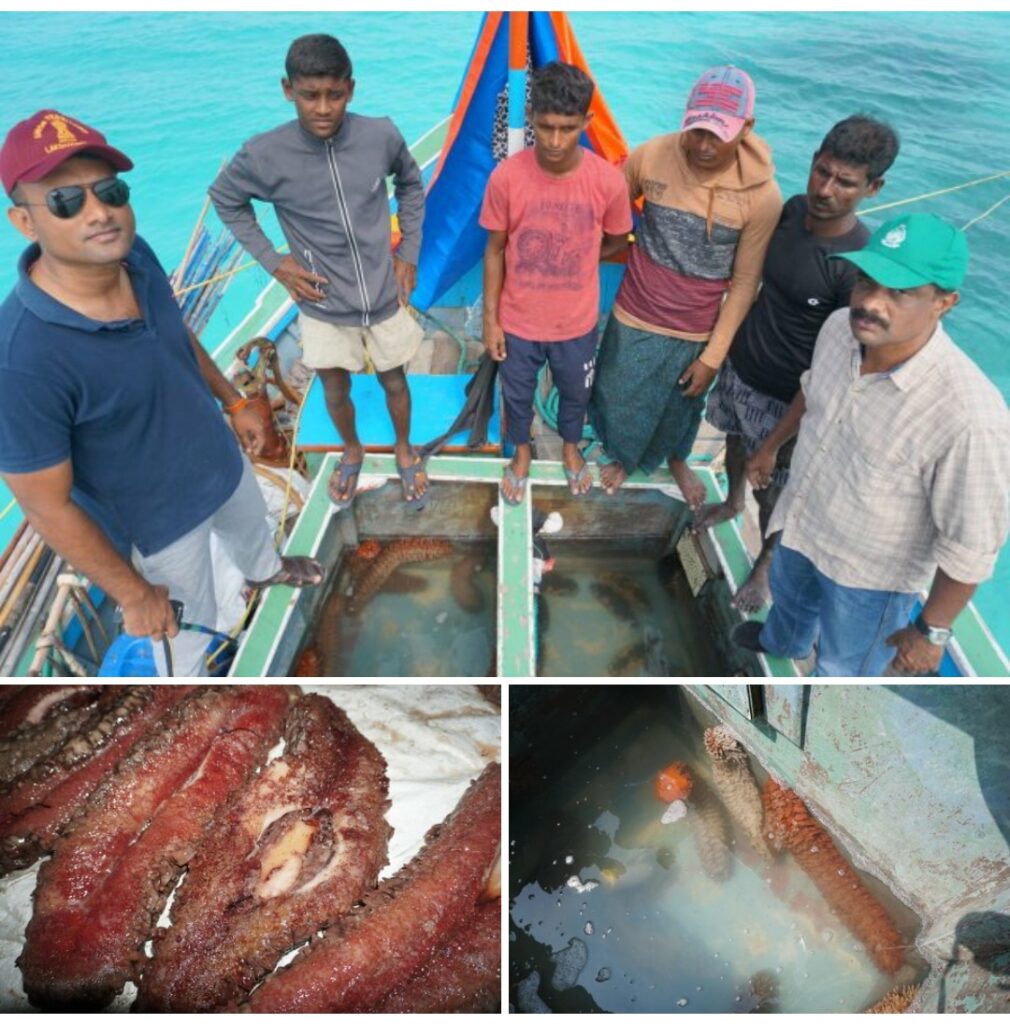
“Locals were not even aware of this market for many years. Now, everyone wants to make big money. So, it is becoming difficult for us to track every activity. We have buckled up and with the task force in action and regular patrolling, we are being able to control this crime,” said Mr. Damodar.
He has also released a documentary on sea cucumbers and coral reef of Lakshadweep to create awareness among all people.

